How does social media affect you?
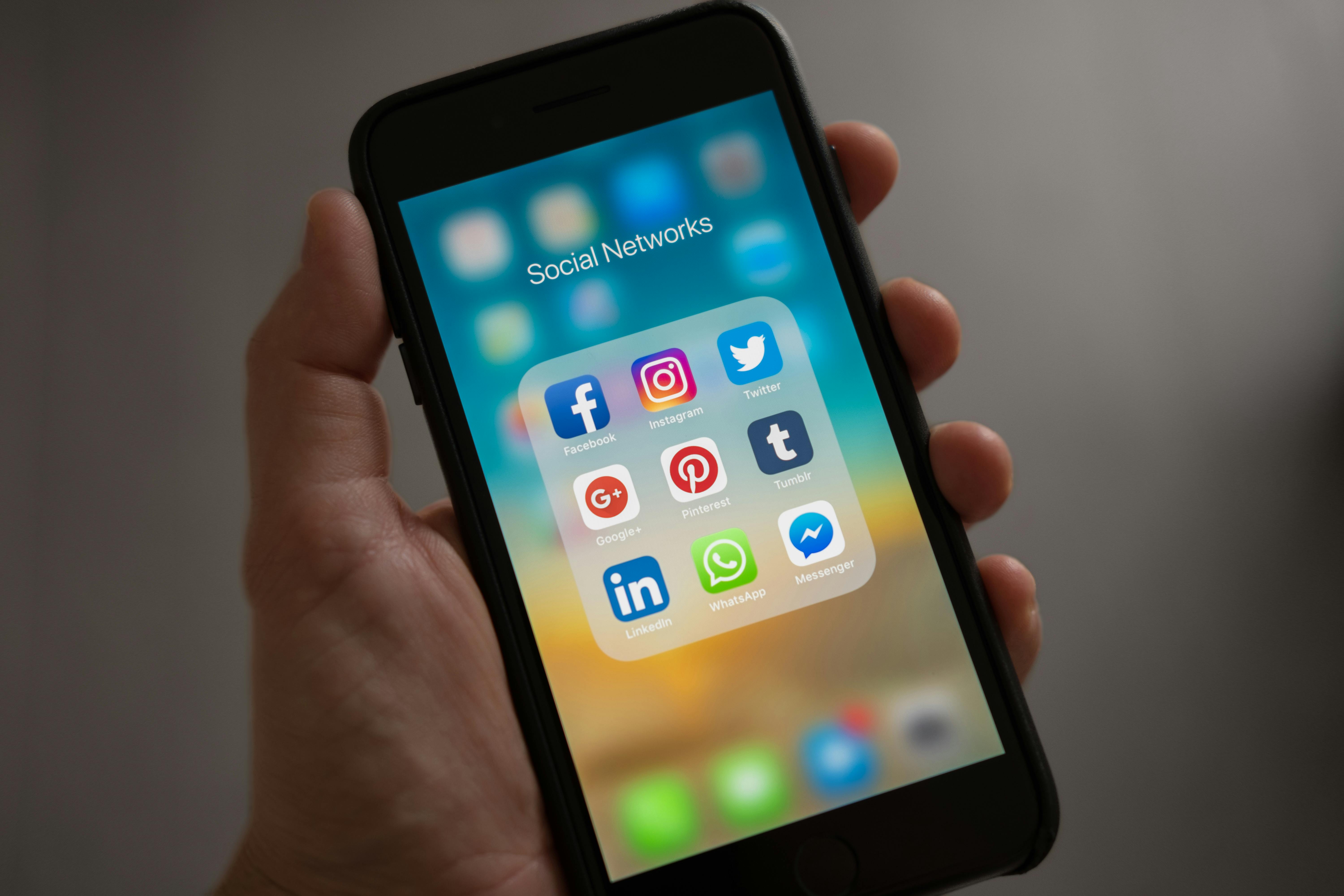
- Benefits and downsides of social media
- Practical tips on social media usage
- Social media FAQ
How does social media affect you?
Benefits and downsides of social media
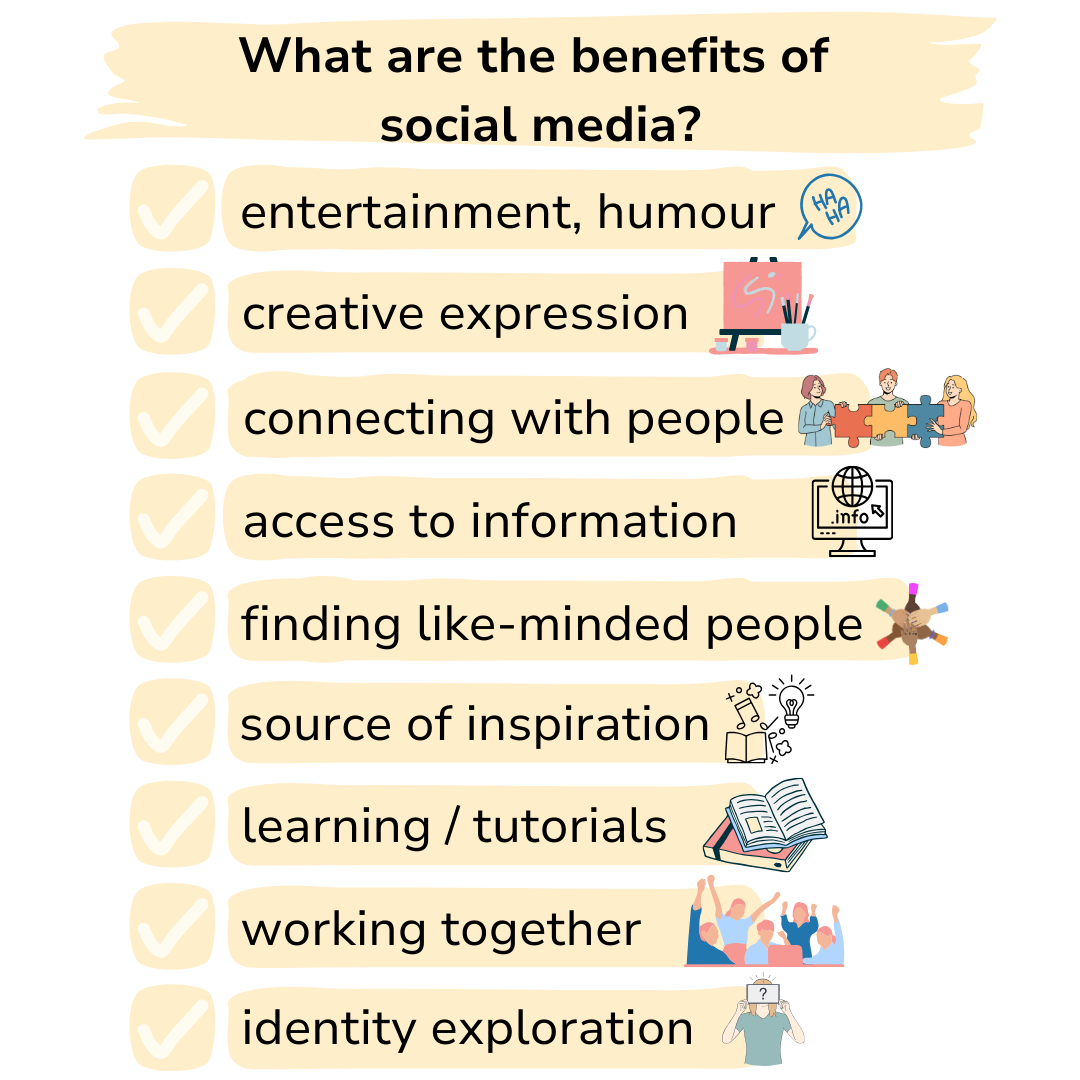
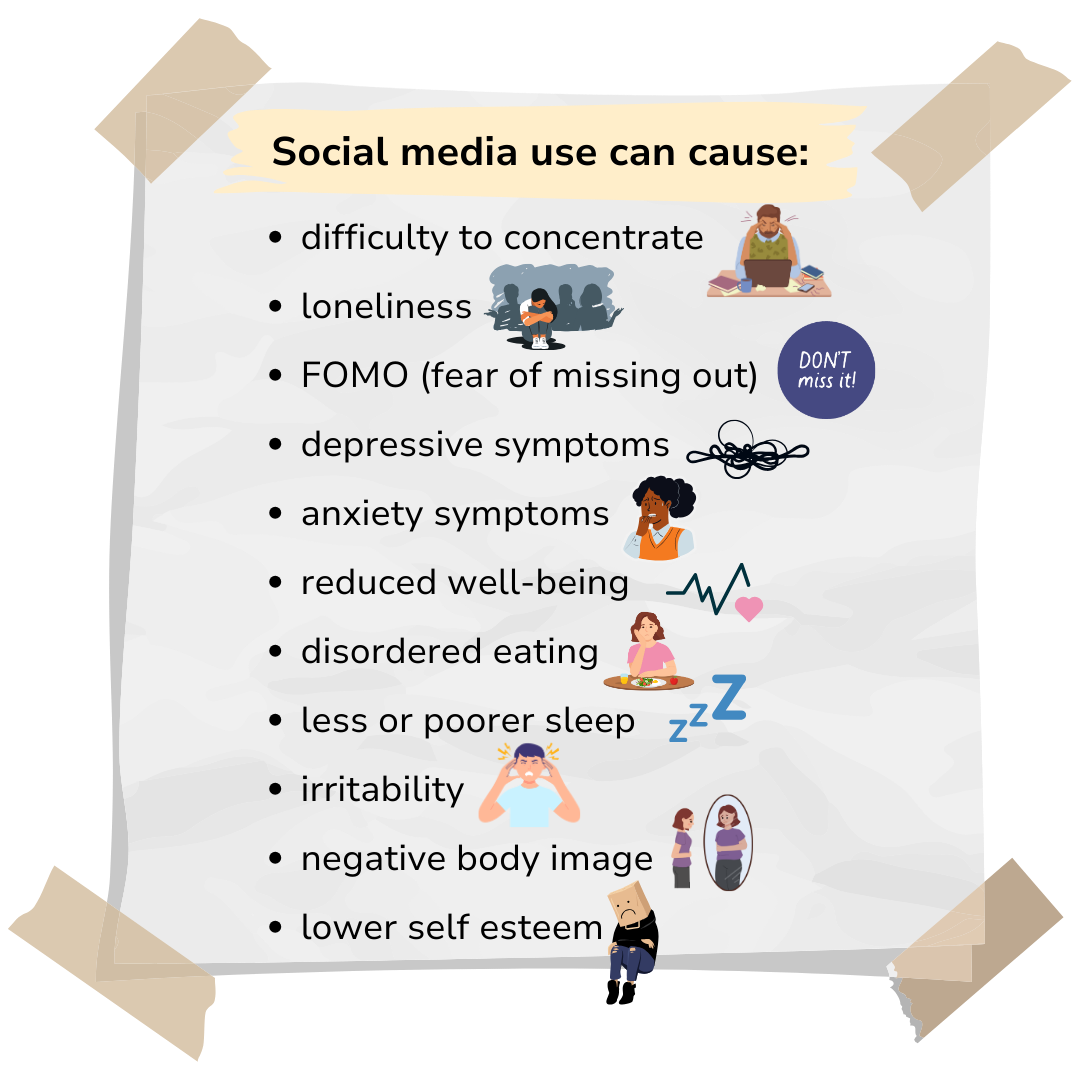
Practical tips on social media use
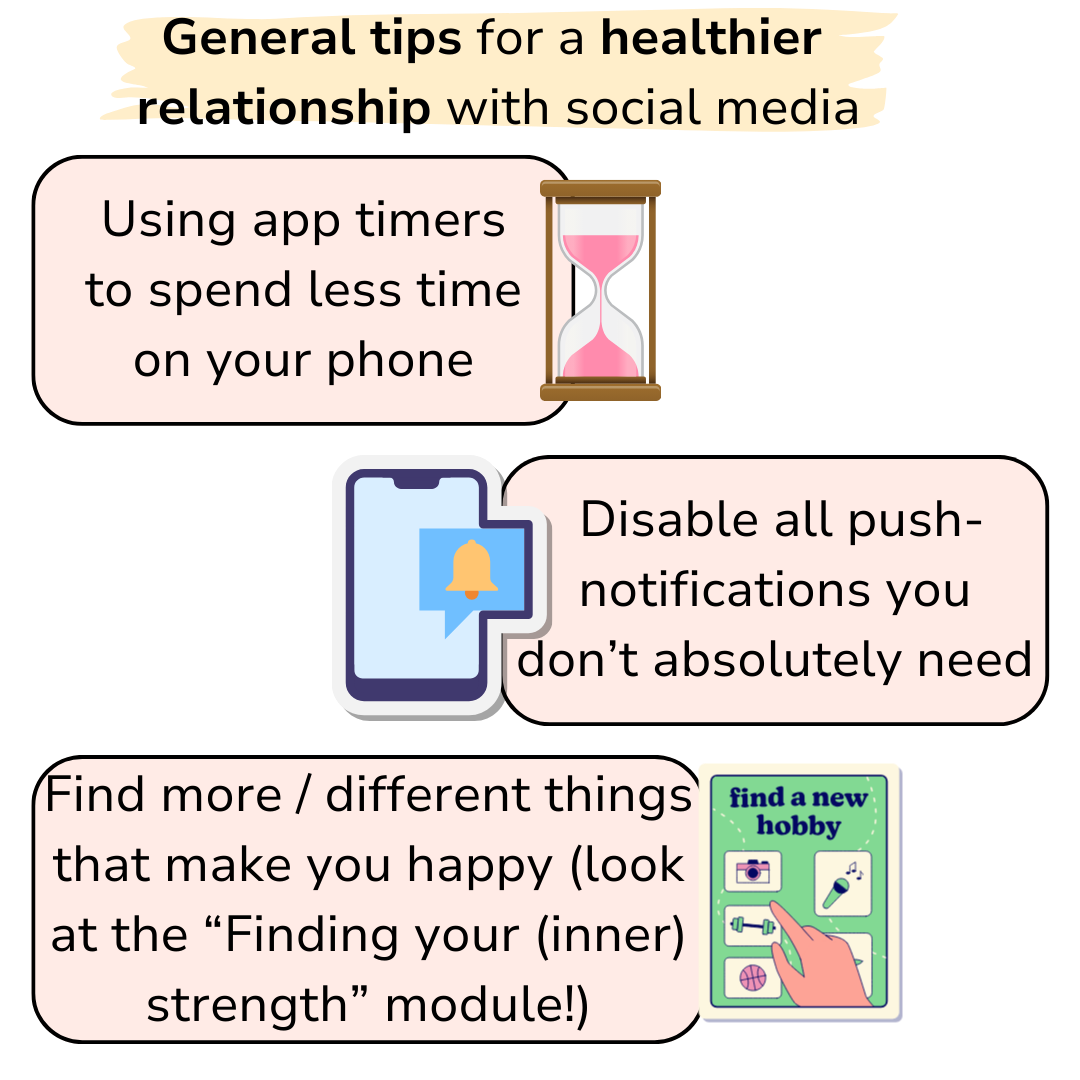
Social media FAQ
You don’t have to unplug for two whole weeks if you don’t want to! Maybe just start small with an hour a day or one day a week?
You could even ask your friends to join if you like. That way it wouldn’t even feel like you’re missing out on stuff as much!
It’s totally normal for people to compare themselves to others – there’s a ton of psychological research on that.
Here are some tips what you can do:
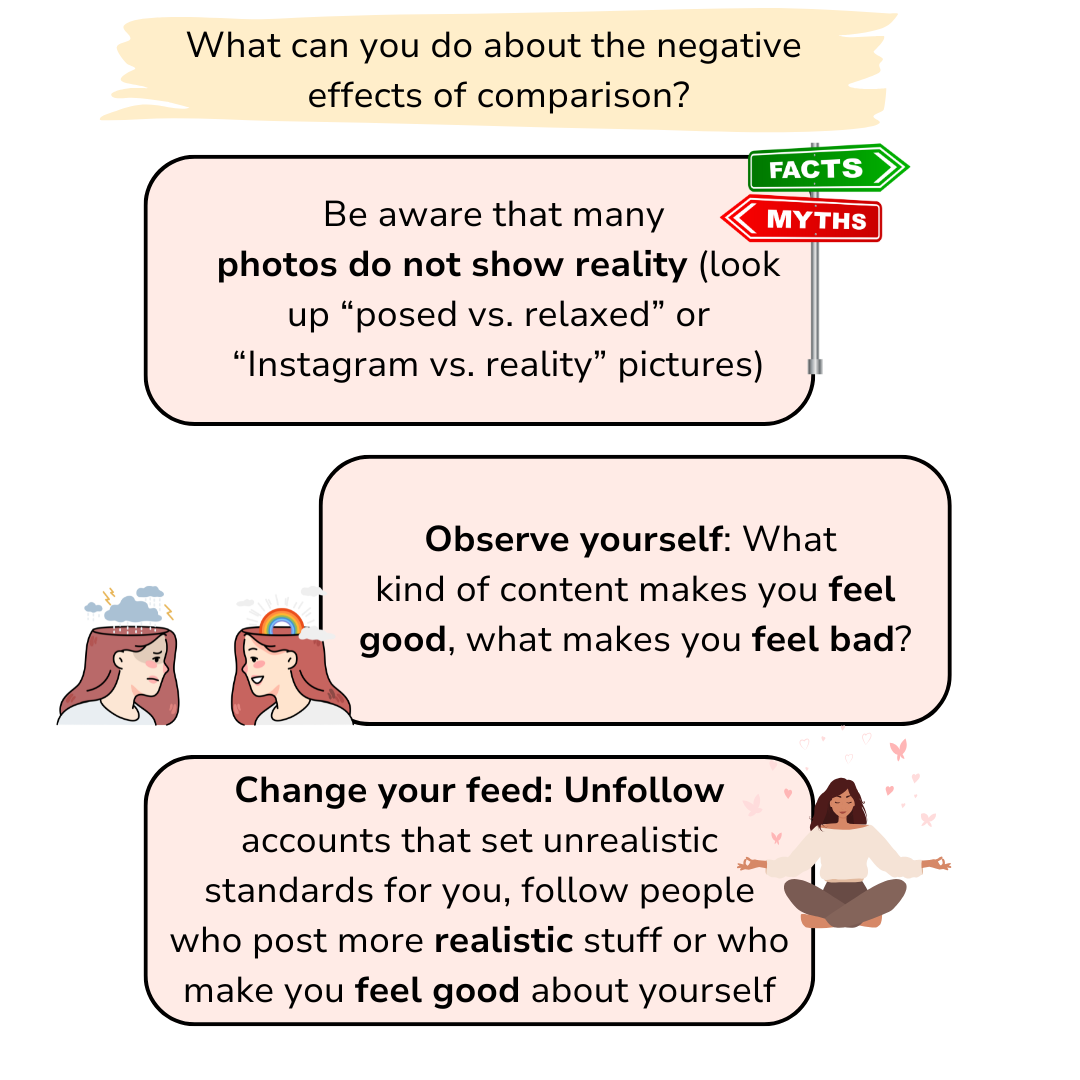
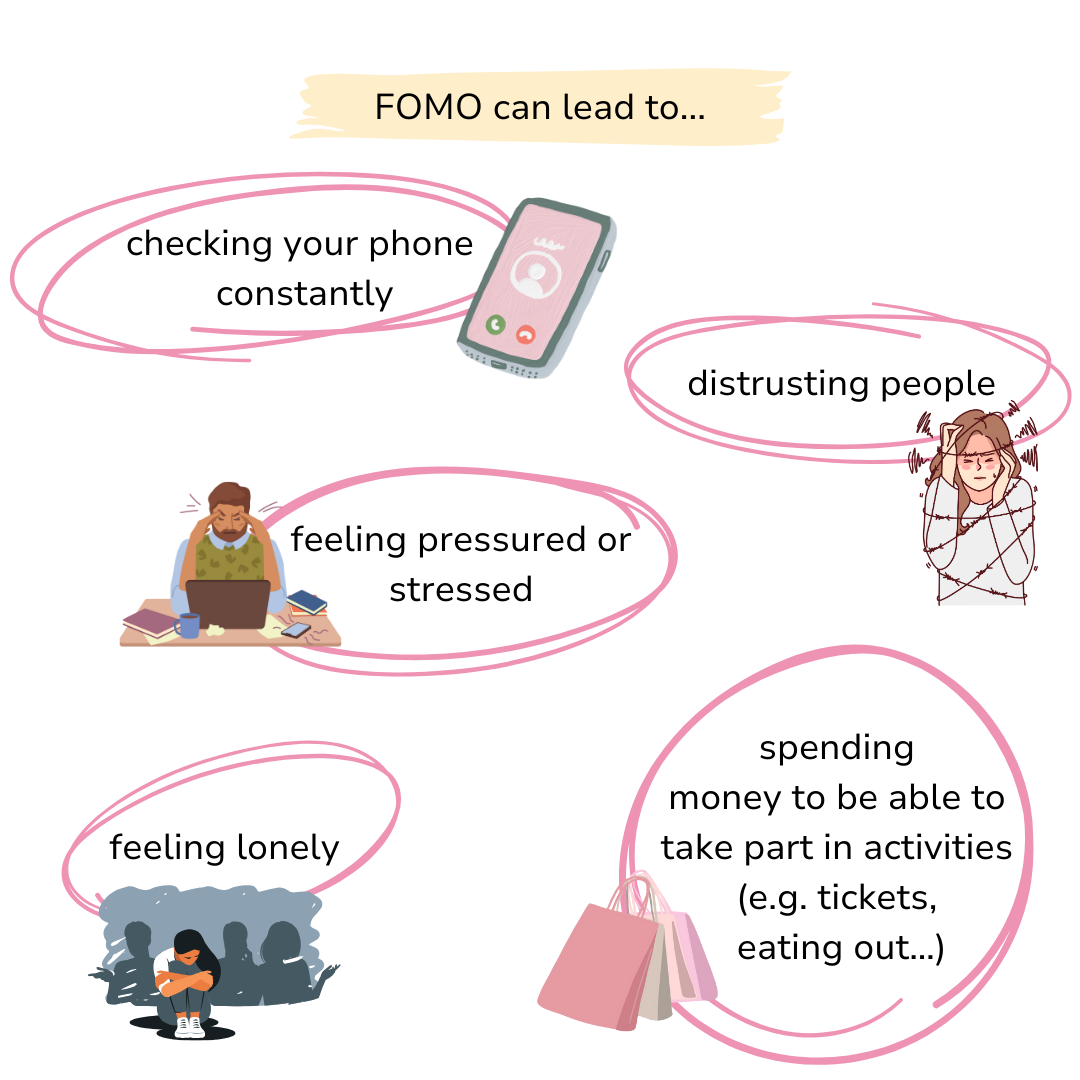
If you feel like you use social media to avoid feelings, check out our eSano module "Caught in a feeling".
If you want some inspiration on how to get in action instead of using social media, check out our eSano module "Give your mind a break - and get moving!".
If you feel like you use social media because it’s hard for you to meet people, check out our eSano module "Meeting new people and making friends".